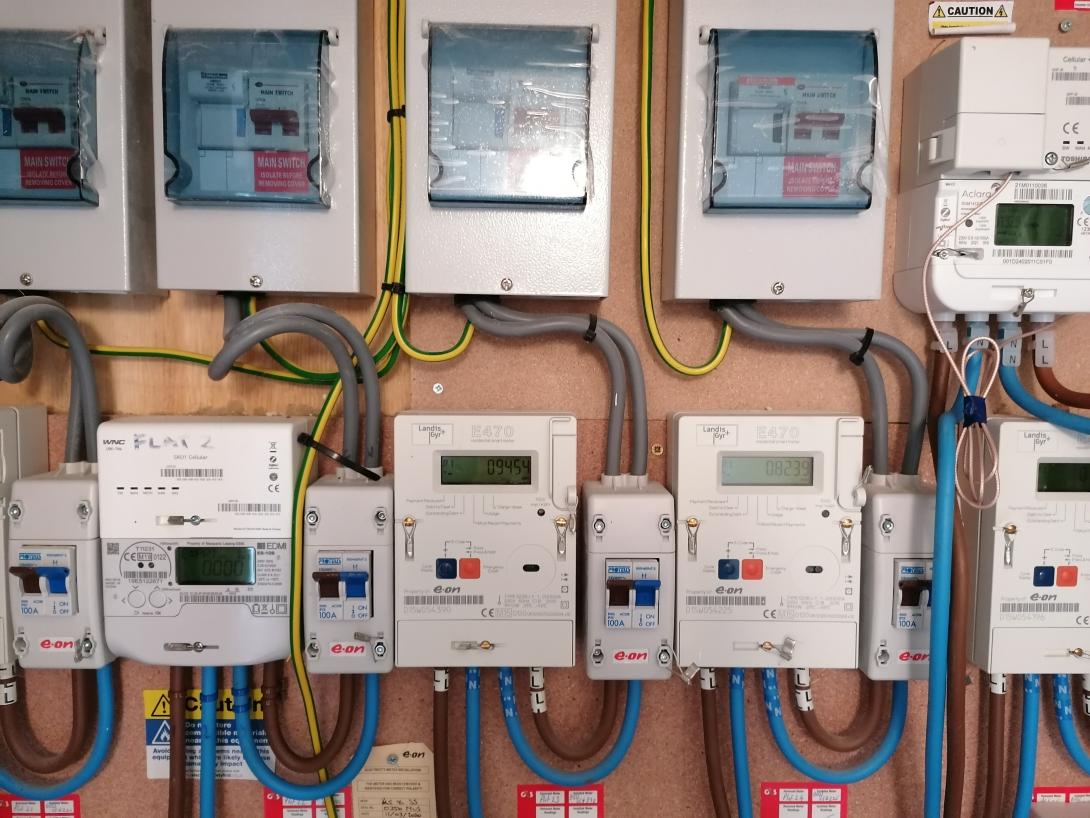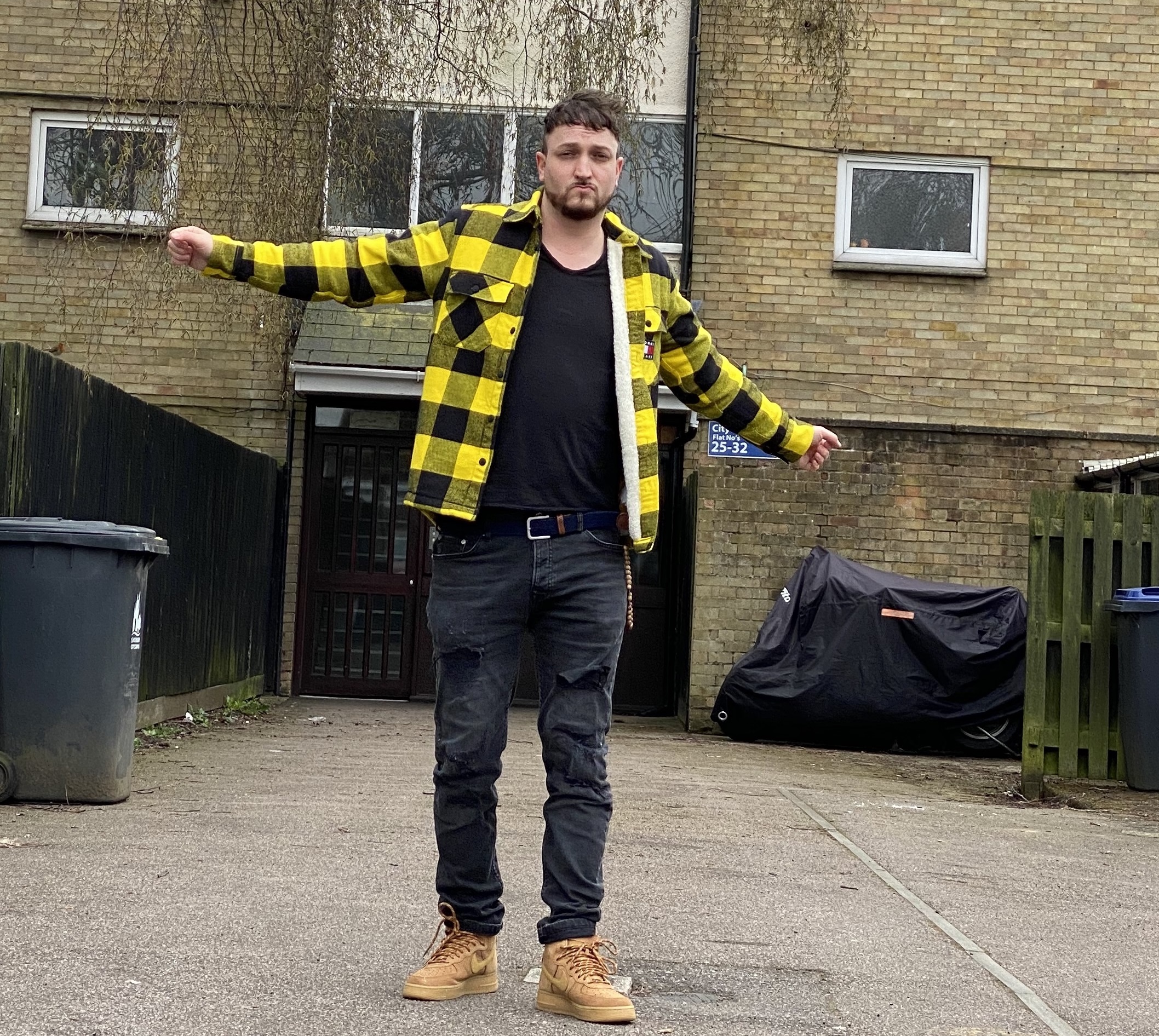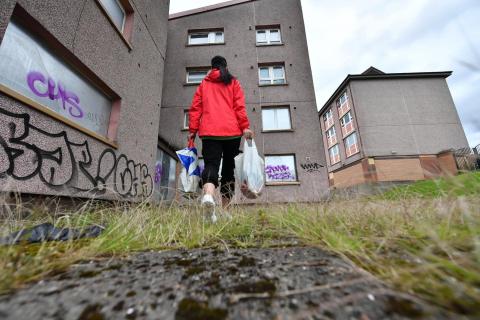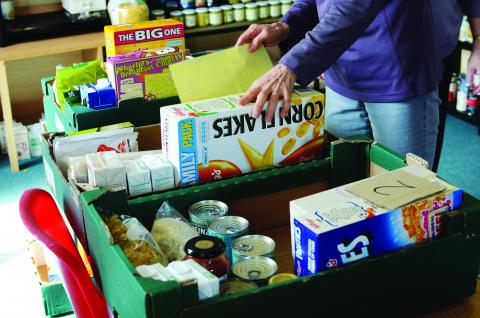30 September 2022
Breadline Voices: 'Fuel poverty isn't experienced in isolation... you're dealing with multiple inequalities'

By Dominic Watters, single dad, Kent
"I often say the council estate I live in is a 'fuel desert in the Garden of England'.
"Our lack of access to gas and electric is coupled with our lack of nutrition, as the shop in the estate only stocks the lowest quality of produce and it doesn’t have the top-up facility for your gas and electric.
"I highlight this not only because it’s my daily reality but because it demonstrates the intersection between food and fuel insecurity that poor people often live with.
"As I talk to you right now my gas and electric unfortunately is on 'emergency' and this can make you feel like your whole life is on emergency because when that goes you can't cook food for your daughter, you can’t wash clothes, you can't boil your kettle, you can't even have a shower.
"I also dread when it cuts off in the middle of the night because then the fridge goes and everything in the freezer pretty much cannot be rescued by the morning.
"It's quite a harsh way to live. I didn't really speak about these sort of realities – like the electric being on emergency, the cooker we got from the homeless charity, using a food bank, the Free School Meal vouchers for my daughter – to anyone outside of the estate because there's so much shame and snobbery unfortunately in our society.
"It's only since Marcus Rashford and The Food Foundation did their thing that poor people have started to discuss how these issues – not only to share them but also to speak to how they impact on your spirit and aspirations. It can all combine to dim your horizons.
"When I've spoken to other people who don't live like this, I don't think it quite registers that with a pre-pay meter you can only top it up with cash so you can’t top it up with your phone or a debit card.
"In my estate there is no cashpoint. A lot of my neighbours are less mobile than me, and during the Covid crisis with the restrictions on movement, it really brought to life how our lives are different to people that have more money.
"It’s only now that these price rises are impacting a broader more middle-class element of society that it seems to be getting the attention that it is.
"To just deal with the necessities of being able to have electricity and gas and food is like a full-time job almost.
"People spend whole parts of their day travelling to different supermarkets to get those slight reductions and some shops let you top up your gas and electric.
"I’ve heard neighbours of mine talking about washing their clothes less to counteract the price rises of gas and electric.
"I really like cooking for my daughter but when cooking from scratch I can see my pre-payment meter going down but with a microwave meal you put it in and it’s done.
"But that speaks to the limitations on poor people’s well-being because you don’t want to give your children ‘bad calories’ and less nutritious fresh food than people they go to school with.
"Fuel poverty isn’t experienced in isolation. You’re dealing with multiple inequalities that impact on your ability to function in the world and engage with society."
This is part of Breadline Voices, a series from The Food Foundation highlighting the realities faced by millions of families plunged into food and fuel poverty as food prices reach a 40-year high.

Want to help? Please support our #FeedtheFuture campaign
Are you an MP? Click here for our latest briefing
Are you a food business? Click here for our latest report
Are you a journalist? Click here for our latest work





